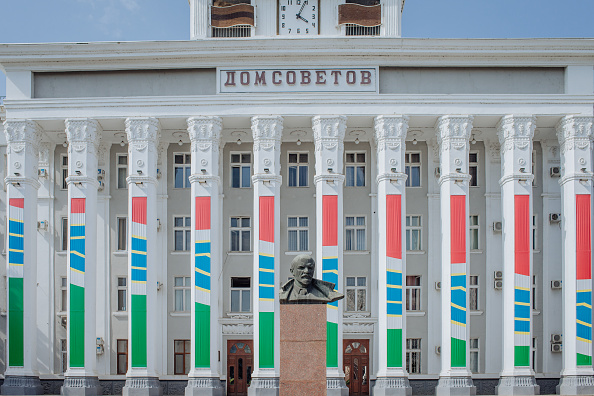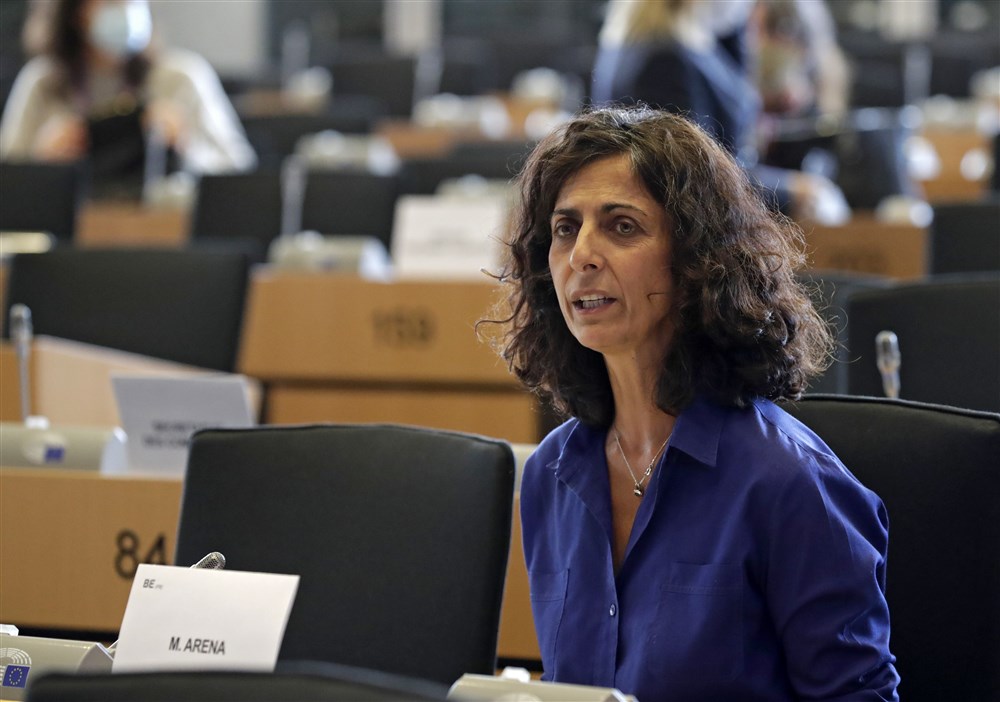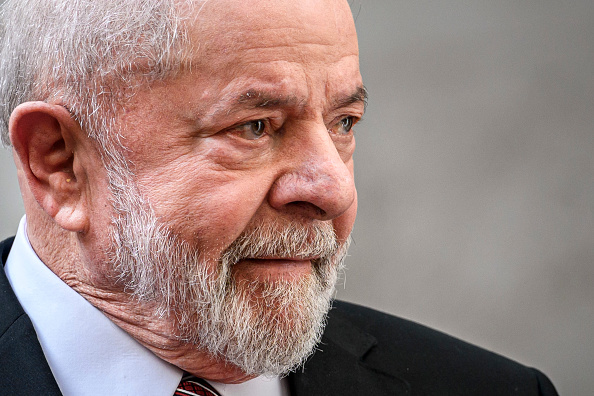France is dead. What was the greatest country in Europe, which supplied the world with the vocabularies of diplomacy, politics, militaria, ballet, food, culture and art and even aviation (fuselage, pilot, aileron, hangar) is no more.
France is not so much a nation as a bag of competing interest-groups that have traditionally been brought together by big projects, such as the magnificent reconstruction of Paris in the 1870s, or the Maginot line in the 1930s and more recently the vast La Defence in Paris, which began to shed its skin the moment it was finished, and cost another €200 million to get right.
President Macron is following in that big-project tradition with the Olympics this summer, which he expects to regenerate the glories of the France of old. However, much of the city will cease to function while the Games are on, though Islamists are not expected to show a comparable restraint, either there or (more probably) elsewhere.
But do not be surprised if the 100 metres is run over an 80-metre track because of a shortage of grit, or if the marathon takes place on the Peripherique orbital road with the traffic still on it, because the all-powerful taxi drivers wouldn’t allow it to be closed.
The most traditionally-French thing about modern France is its ability to conjure riots out of thin air: this time last year, in a single nation-wide eruption 2,000 cars were torched, 3,380 buildings set on fire, 220 towns and cities were swept with violence and 40,000 police were mobilised, with 250 of them being injured. Which is why the gendarmerie has banned fireworks during this summer’s national feast day, especially since the latest “festive” rockets can be fired horizontally at 100 km/hr.
Not Belfast: Bastille Day. Aux armes, citoyens!
I have been to Normandy on four occasions in the past two years. Each time was like visiting an old folk’s home as the residents slumbered their way to the grave. The last trip. the two of us, just off the ferry and searching Cherbourg for breakfast, finally found the only café that promised both coffee and baguettes (or so we thought).
The result was intrinsically Egyptian: the coffee tasted like the effluent from the Cairo fever hospital and the baguette was one of the “long-life” variety, this one apparently from the age of Tutankhamun and resembled a condom filled with wet sawdust ….well, I hope that’s what it was.
Thereafter, matters grew worse, like time-travelling to Poland in the 1960s. Even finding somewhere that served lunch would usually take at least an hour. One day we consumed an omelette that had apparently died after a long and painful illness, bravely borne, and sought consolation in two coffees. “Désolée, monsieur,” yawned the waitress through here tattooed hand. “Nous n’avons pas de café aujourd’hui. Demain peut-être?”
Lunch the next day in a different café seemed to consist of road-kill on toast. The menu promised café au lait, which we asked for, it being a café. “Désolée, monsieur,” snuffled Waitress Mark Two through her nose-ring, “nous n’avons pas de lait aujourd’hui. Demain peut-être?”
No milk in Normandy? There was a supermarket two doors away. Travail is such travail in modern France. However, the public sector still beavers away, every village hosting the erection of tank-traps, apparently in case Rommel returns. These masquerade as huge concrete flowers pots in the centre of the road and being invisible at night, are perfect for filling motorists’ brains with windscreen. It’s often easier to experience a hospital queue in France these days than to get anything decent to eat.
Worse still was our realisation that the French people, who were happily wolfing their way through meals that Ethiopians would have scraped into the nearest dog-bowl, were clearly unaware of the catastrophe that has befallen their culture and their country. The Jewish philosopher Alain Finkielkraut calls the deadening of the senses and the blandness that is suffocating French life as “La Doxa,” which – roughly – is like being marooned for a month in an airport-sized Walmart in Nebraska.
How did this happen? I don’t know. I’ve been going to France for decades, and I don’t love it, I adore it. Contrary to anglophone mythology, provided you even try to speak their language, the French are very friendly, and endlessly forgiving when you confuse a bath with bread (bain, pain) – sign-language works wonders, ostentatious chomping versus stylishly wielding an imaginary loofah, my, how we laugh.
You didn’t have to speak any French in the I980s to have wonderful, glorious meals, such as the one a group of us got in Mailly-Maillet in Picardy where the lady served us in her kitchen, no choice, you ate what she gave you, course after sublime course, right through the afternoon, all for the price of a pair of shoelaces, and we left weeping with happiness.
Every village seemed to have a jewel of a little restaurant, owned and run by a tubby proprietress who clucked solicitously around her customers like a hen with wayward chickens. At the other end of the scale, there was the three Michelin stars of Restaurant Guy Savoy where my wife Rachel and I encountered culinary heaven on our honeymoon. France has given the world many things, and still makes excellent cars and the finest aircraft in Europe – three words, Mirage, Rafale, Airbus – but its defining triumph has been food.
I first sensed the decline in 1998, when friends and I found a new and astonishingly wonderful restaurant opposite the railway station at Arras. I took Rachel there the following year: it had been replaced by a pizza parlour.
Something else was happening: the culture of service was dying, and that’s probably not unrelated to growth of the welfare state. This now consumes 32% of the French budget, the greatest proportion in the world, while government in France is now all-intrusive.
SNCF, the French railway, seems wonderful, but that’s because it has long been a protected monopoly. Till recently, you could only travel on long-distance coach-journeys if the final destination was outside France, so that only 110,000 people made such trips annually. The figures for Spain and Britain were each around 30 million.
Furthermore, over a million employees in the country have protected jobs from which they can’t be sacked, so long as they don’t murder the boss, though aggravated assault is probably both okay and pensionable.
Wander along any French shopping area, you’ll think from the huge numbers of pharmacies that the French are either very ill or profoundly neurotic. The second, certainly – they’re very fond of shoving strange articles up their Gallic bottoms – but the main reason is that pharmacies, because of the political power of their owners, are protected by the state.
France has repeatedly broken the EU budgetary laws, yet has never been punished by Brussels. Still, with the threat of Le Pen’s National Rally probably taking over the national assembly in the elections next month, the European Commission is holding out the threat that it will change its mind and for the first time force France into painful scrutiny.
It is easy to understand the French tolerance of their presidents’ avid pursuit of pelvic recreation, for it creates huge entertainment in otherwise humdrum lives. Valéry Giscard d’Estaing, perhaps wearing the diamonds kindly given to him by the Cannibal-Emperor Bokassa, once collided with a milk truck as he skulked homewards after following his wayward corpus cavernosa to an assignation.
Francois Hollande would sneak out of the Elysée wearing his motorcycle helmet for nightly tristes with his comely squeeze Julie Gayet, maybe at her request still wearing his helmet, in the hope (for her) that the wearer might turn out to be a French Steve McQueen.
Jacques Chirac apparently accomplished the entire deed, the undressing, the bit that follows, the shower, and then dressing again, in five minutes. If this were the Olympics 400-metre copulative hurdle, Chirac would be at the winner’s rostrum before the starter had even fired the pistol.
Moreover, France has successfully assimilated and frenchified whenever it has wanted to: Napoleon’s family was Italian. Charles Aznavour was Armenian, Simenon, Johnny Halliday and Jacques Brel were Belgian, Beckett was Irish, Georges Monstraki, who wrote Milord for Edith Piaf, was Egyptian-Greek-Italian-Jewish, and Juliette Greco, who in 1967, the summer of love when the world was winsomely fluting about wearing flowers in your hair, got more to the point with Déshabillez-moi, or “Undress me” – certainly, my dear – was Greek.
Of course, there has been no question of “assimilation” for the millions of African immigrants who have moved to France, hundreds of thousands of them living in the 29 banlieues that are the far side of the Peripherique, largely unpoliced and now quite unpoliceable, control having been assumed by drug-lords. It is impossible to predict the outcome for these African colonies, except this: it will not be pretty.
There’s another dark side to French life, and I don’t mean those loathsome philosopher-charlatans such as Derrida, Sartre and Althusser, whose demented ramblings have corrupted campuses around the world. But I do mean Dominique Strauss-Kahn, the quintessentially corrupt public servant, for whom his toadies arranged fifteen call-girl orgies and who was clearly created to prove feminists right when they talk about the loathsomeness of men.
Jérôme Cahuzac was both the minister in charge of investigating tax fraud as well as being one of France’s biggest tax fraudsters, and was merely the tip of an iceberg. President Sarkozy pocketed illegal donations from the senile L’Oreal heiress Lillianne Bettencourt (because he’s worth it).
Some three thousand priests are believed to have sexually abused thousands of children in the past seventy years. A police officer walked out with 52.6 kilograms of seized cocaine from Maigret’s legendary headquarters, 36, Quai des Orfevres, even managing to avoid being filmed by the security cameras that had been installed after a Canadian woman was gang-raped there by four policemen.
Indeed, “Le flic ripoux”, the crooked cop, is a fixture within French urban myth, but no caricature matches the murderous zeal of the Paris police in 1942, arresting more Jews than even the Nazis had asked for or could even cope with in the infamous rafle du Vel’ d’Hiv’, or the Vélodrome Roundup, final destination, the Auschwitz Gas Chambers. Was that the final, fatal curse on what was once the world’s greatest and richest civilisation?
Peut-être ou probablement? Non, certainment.
Kevin Myers is an Irish journalist, author and broadcaster. He has reported on the wars in Northern Ireland, where he worked throughout the 1970s, Beirut and Bosnia.





Hamas hostages and mass slaughter mean Israelis must pursue and destroy